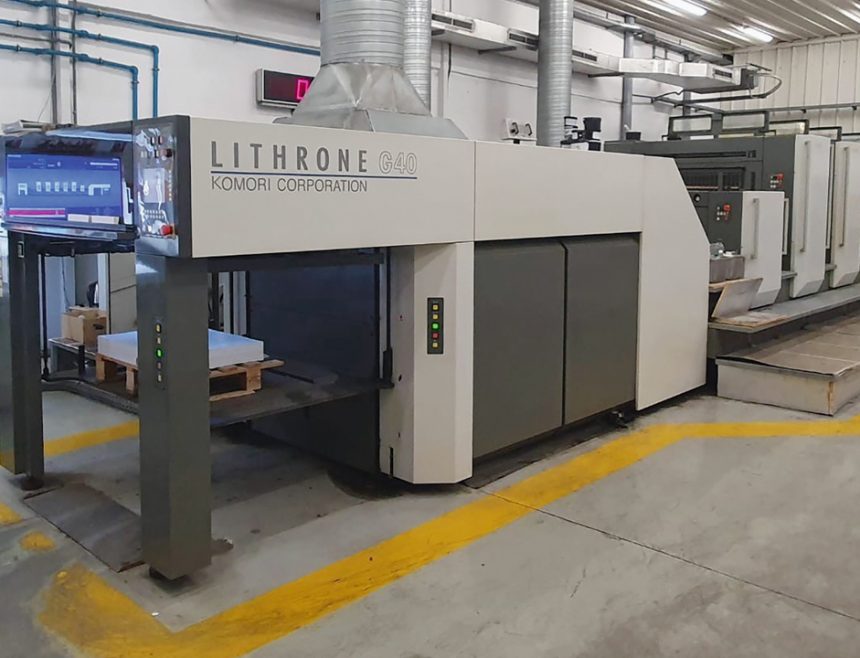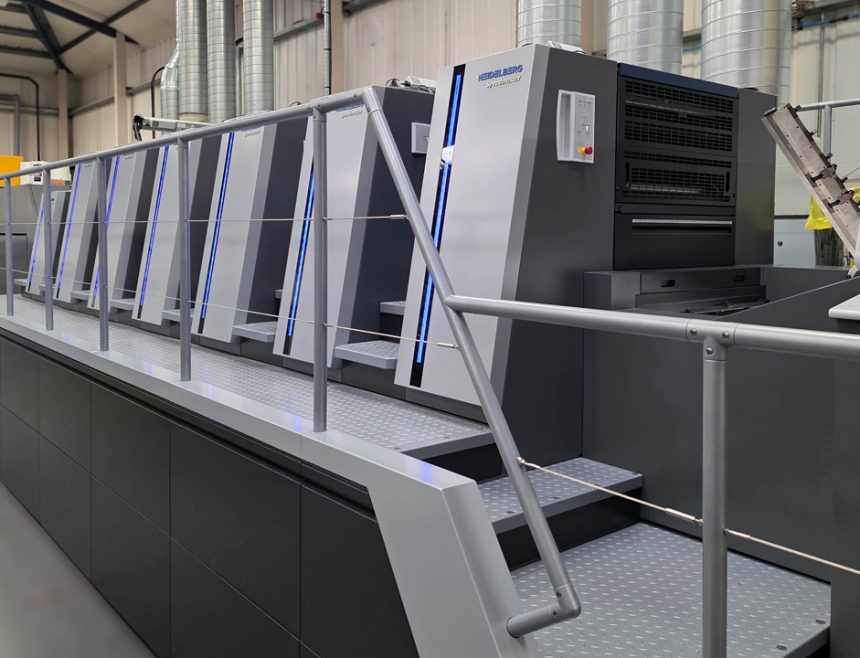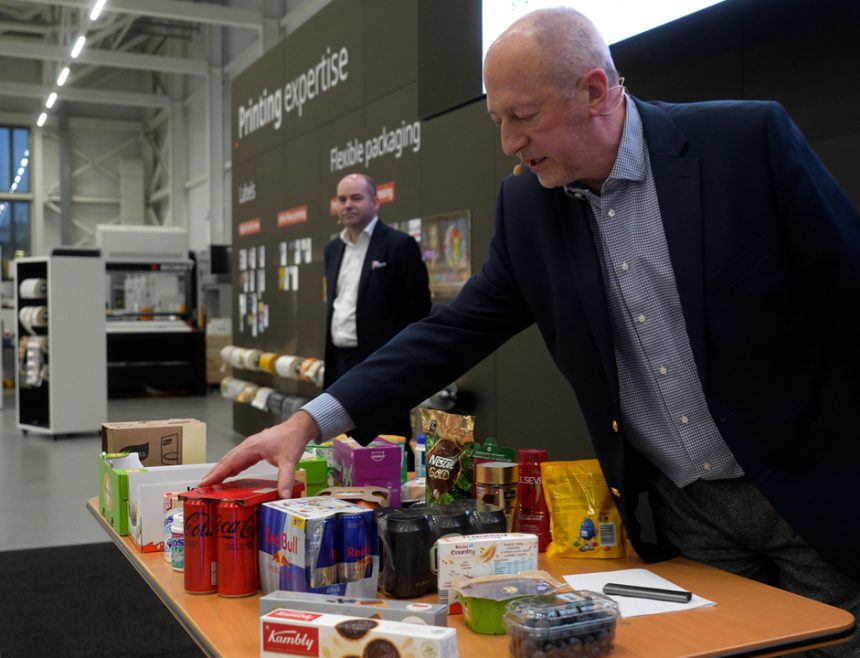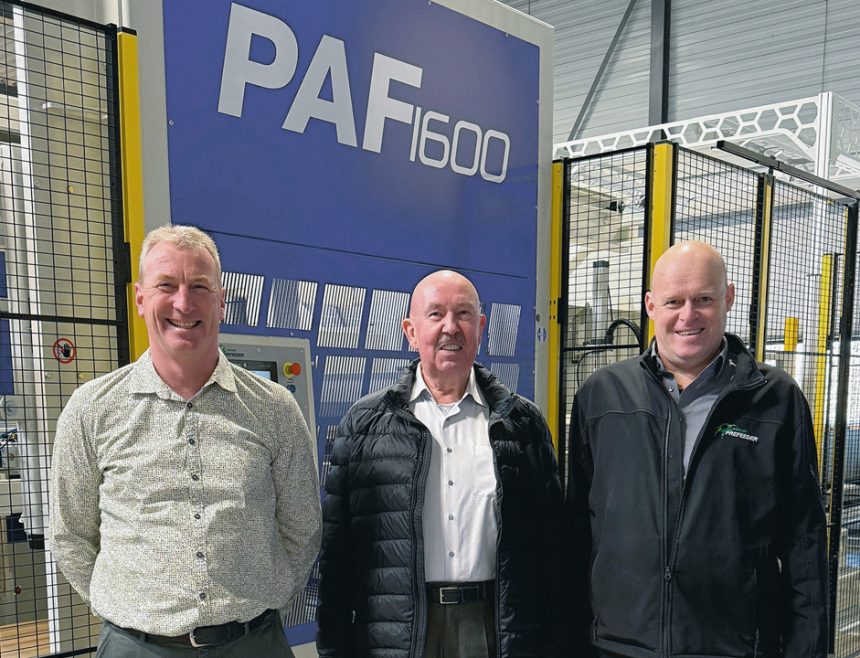Located in the heart of the Italian food valley – close to Turin, Milan, Venice, Bolzano, and Florence – FEPA S.p.A. is among the leading suppliers of corrugated packaging in Italy.
Utilising integrated production, FEPA controls and guarantees the quality of corrugated board for its customers, further supporting them with the transformation phase, creating valuable packaging to ensure the product’s protection, visibility, and sale, further strengthened by the timeliness of its logistics service and FEPA’s quality control checks.
The raw materials used in the manufacturing process comply with FEPA’s principles of sustainability and recyclability. Furthermore, FEPA produces energy from renewable sources (photovoltaic panels) and uses 85% of this across its factories.
FEPA is a new name in the Italian corrugated market for 2023, but the name Sandra S.p.A. has been rooted since 1960. The company name Sandra changed to FEPA, an acronym for Ferretti Packaging, to reflect the generational change of the company; it highlights the importance of the Ferretti family at the core of its business, representing the company’s heritage while demonstrating its character of modernisation and innovation as it begins the next chapter of its journey. In 1960, Franco Ferretti, and his wife Gabriella Gabbi, the founders of Sandra, opened a small workshop in the basement of the grandfather’s house. That began what is now known and established as one of the leading innovators in Italy’s corrugated industry.
Daniele Plazzi, Chief Innovation Officer, has worked for FEPA since 2014. His background in process control and lean manufacturing places him in an ideal position to investigate technology to address the challenges of corrugated board and box manufacturing in an ever-evolving industry.
Plazzi said, “We have two plants in northern Italy; this was a strategic decision as 75% of consumption happens north of Rome. In the past three years, we opened a new business unit dedicated to the open flute market to meet the needs of our customers. Our customers are typically FMCG clients from the food and beverage, hygiene, fresh fruit, and vegetable markets. We pride ourselves on our levels of customer satisfaction – our product is service, and we invest in our people and technology to deliver our product.”
Plazzi continues, “Corrugated board is a commodity, and we had to differentiate from our competitors to compete. We offer made-to-order products with Service Level Agreements (SLAs) that give our customers confidence and trust in us. We always deliver on our promises, which keeps customers returning for more.”
Opportunities for Corrugated Growth
With sustainability being high on the agenda for brands and consumers, brands are exploring innovative ways to substitute plastic, creating more corrugated opportunities. FEPA is ready to take on the demand.
Plazzi notes, “In addition to making board and boxes, we add value to already quality products – we can print high-definition graphics on the board, helping provide customers with a full-service solution. We are responsive, flexible, and adapt quickly to requests which help us compete with the larger companies and groups that operate in the same space. We offer our customers something that the larger groups can’t – we react quickly, we are pragmatic, we are lean, and we respond immediately. Our typical time to market is between three and four days.”
Planning for Growth
Today, FEPA counts approximately 550 people in the business across two production plants, San Polo di Torrile and Mezzani. The company is expanding by building a new branch next to Mezzani plant. This new project is called Mezzani2 and will be completed in 2023.
Mezzani is already home to a big corrugator – a 3.35m line from BHS Corrugated. This corrugator has two knives and runs 350 m/min. Another corrugator will soon join it, significantly increasing the production capacity.
Plazzi comments on technology’s role in reaching this point. “We have been a long-term customer of eProductivity Software and we have used the PC-Topp Manufacturing Execution System to manage our planning and production operations effectively. PC-Topp gives us access to the system anywhere – we can log in anywhere we have an internet connection. It manages all our scheduling needs – from the corrugator to the converting equipment; it’s a trusted solution that does the job well, and all the team enjoys using it. It fits our Industry 4.0 ethos – providing useful data and dashboards to ensure the plant and operations run lean and smoothly.”
 He continues, “We regularly report using the data in the system and provide management with overviews on productivity, whether by day, week, shift, or machine. The data we collect highlights and allows us to make informed decisions on areas of the business that require attention.”
He continues, “We regularly report using the data in the system and provide management with overviews on productivity, whether by day, week, shift, or machine. The data we collect highlights and allows us to make informed decisions on areas of the business that require attention.”
As FEPA’s trust in ePS grew, it further invested in solutions from ePS. “CorrTrac is important for the business as it links the planning department and our SAP management system,” explains Plazzi. “Using CorrTrac, we can quickly identify the roll and know how much has been consumed at the wet end. As a business, we wanted to understand the link between paper consumption across orders and identify the rolls used to make an order.”
He adds, “Before we had CorrTrac, we only knew the paper quality; we had various paper suppliers, geographically disparate, and had minimal data that we could work from to make sensible decisions. With CorrTrac, we can quickly identify what specific roll was used for an order; it has meant that we can consolidate and optimise our paper stock which has been a massive cost-saving for the business. It has had a positive effect in allowing our process to be more streamlined. For any given order, we can identify which supplier was used and how much of the roll was consumed. It allows us to make better purchasing decisions as we can determine like-for-like rolls and choose based on the best price.”
He notes, “Before CorrTrac, we’d have a list of all the papers sat with the clamp truck driver to tick off as they did their job. Now with the integration, the driver has a touch screen in the truck and can see what paper is on the corrugator as it’s all linked to the planning system within PC-Topp. The planning team can quickly push notifications to the clamp truck driver with instructions on which paper to select. This has reduced manual errors and the need for data entry and improved the overall process.”
Tight Integrations
“The ePS team’s work to help integrate into our SAP solution has transformed how we work. A Purchase Order is created and automatically sent to CorrTrac with all the required details included to guide production from the purchasing department,” says Plazzi.
All inbound logistics are sent back via CorrTrac to SAP. All movement from the warehouse to the corrugator and vice versa is tracked. Rolls are scanned to identify supplier, amount, and location, and the roll’s movements are tracked and reported back to SAP via CorrTrac.”
“We can see what stock is available versus what is in consumption. Butt rolls are calculated and returned to the warehouse; again, all data linking via CorrTrac to SAP. We can reflect consumption and stock availability in real-time – our inventory has never been so easy to navigate, nor so lean,” said Plazzi.
A Smooth Profile
Recently, FEPA has benefited from Escada’s Profile solution to ensure warp-free, high-quality board is produced. “Escada Profile has reduced our waste significantly, and our customers are delighted with the quality of the board we deliver,” comments Plazzi. “We’ve defined optimum recipes based on paper-quality test liners. Temperature and pressure are the common variables; we have different suppliers of paper, and it can be hard to consolidate multiple papers; while they may have the same characteristics, how they react to water can be completely different, which made it difficult for us to achieve consistency and resulted in a lot of waste.”
He adds, “With Escada Profile, we create recipes based on paper quality and supplier, allowing us to determine the best recipe for success. This has significantly reduced the amount of waste and downtime for us.”
Teamwork with a Trusted Partner
FEPA provides a comprehensive training program for new employees and ongoing training to help support and retain staff.
Plazzi comments, “Everyone is moving in the same direction – we all benefit from the optimised plant with the technical innovation. It’s allowed us to hire new team members easily; we heavily relied on recruiting experienced and skilled people in the past. Now we can take on people with experience not specific to our industry – it’s been a game changer for us, especially in more recent years when recruitment across all industries has been difficult.”
He concludes, “Working with ePS has been like having an expert extension of the team on hand to support our business initiatives. Standardisation of the plant has been a huge focus for us; ePS supported this by helping us identify areas of the process to optimise for success. We’ve benefited from the integration that eProductivity Software has provided us. It will become more critical for our future business to have tight integrations across systems and plants.”













